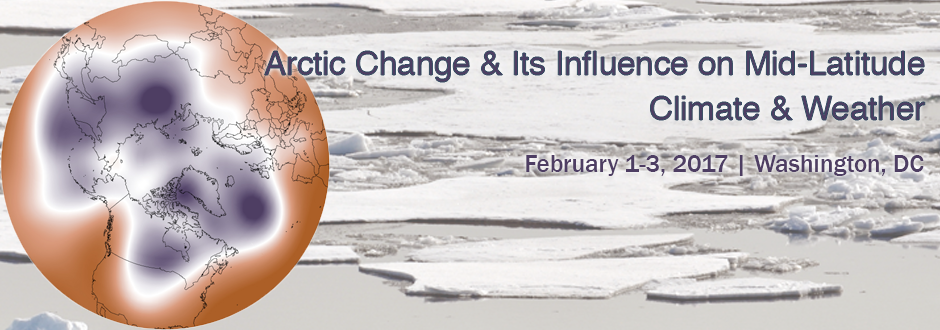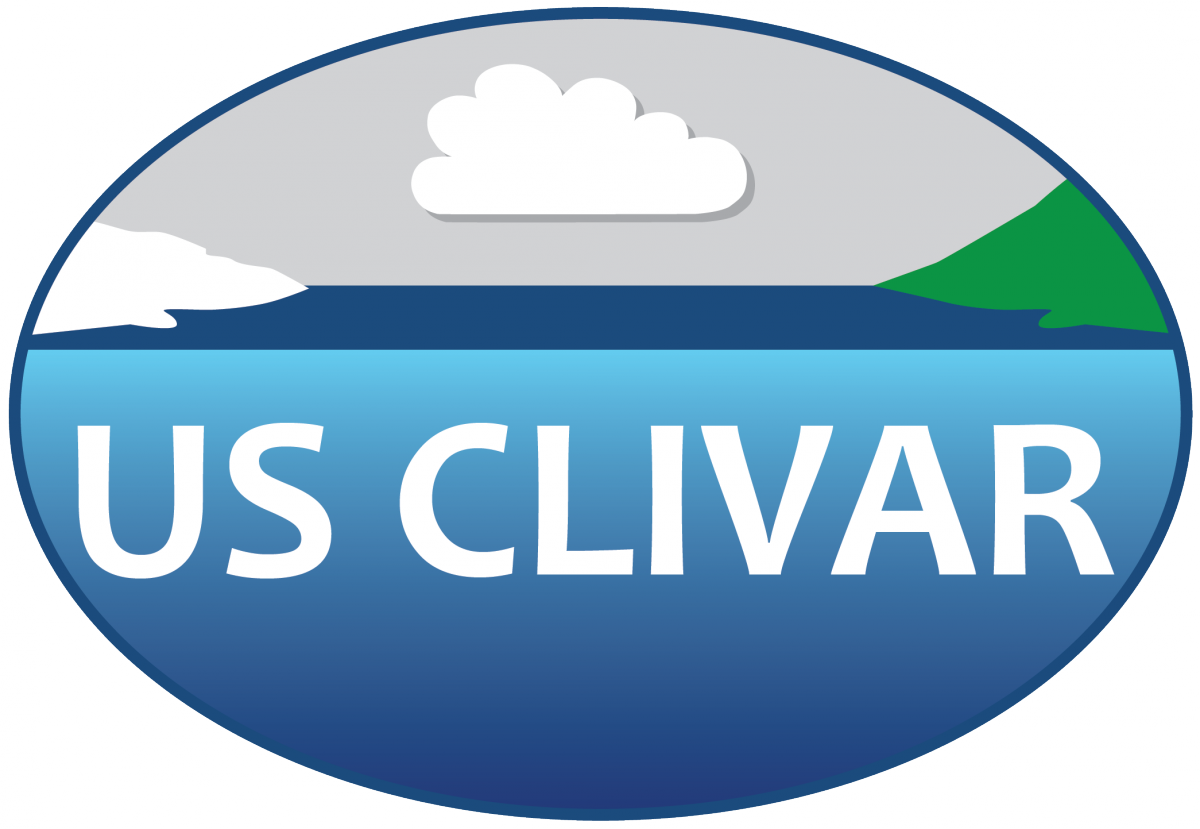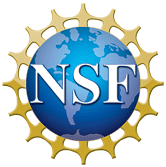2017 Arctic Mid-Latitude Workshop
Objectives
The dramatic retreat of perennial Arctic sea ice has been a wake-up call to the climate community that climate change may not necessarily be slow and steady nor its impacts only of consequence in the far-off future. The newly revealed open waters of the Arctic Ocean and the collapse of warm-season snow cover are known to have profound impacts on the energy balance of the Arctic. And just as heating anomalies in the tropics can influence weather around the globe, large heating anomalies in the Arctic basin may have ripple effects at lower latitudes, especially across the industrialized countries and population centers of the Northern Hemisphere. Furthermore, the Arctic has warmed more than twice as fast as the global average, a phenomenon known as Arctic amplification, and stimulated by the combined increasing Arctic temperatures and rapid loss of sea ice in all seasons along with declining snow cover in the spring and early summer.
These profound changes to the Arctic system have coincided with a period of ostensibly more frequent events of extreme weather across the mid-latitudes, including extreme heat and rainfall events and recent severe winters. The possible link between Arctic change and mid-latitude weather has spurred a rush of new observational and modeling studies.
In turn, a number of workshops have tried to frame the problem and lay the groundwork to improve our understanding of Arctic and mid-latitude linkages and accurate attribution of extreme weather events. Building on previous efforts, this three-day workshop will use the outcomes to guide synthesis efforts, coordinate on-going research to fill out key gaps, and provide specific recommendations for accelerating scientific progress—with the aim to improve our understanding and predictability of 1) high- to mid-latitude climate variability on subseasonal-to-seasonal and on interannual-to-decadal timescales and 2) climate extremes.
Participants
The meeting is open to the science community interested in contributing to the discussion. The workshop is limited to 100 attendees, including invited speakers. Participants will be able to submit an abstract for a poster and be required to fill out a brief application to attend. The Organizing Committee will make a final decision about attendees in the fall. We encourage participation by scientists of diverse ethnicity, career stage, institution type, and gender.
Format
The meeting will be held over three days and will consist of plenary talks, posters, and breakout sessions. The last half-day of the workshop will be an optional writing/planning session for the organizing committee and any other participants who want to be involved in writing the workshop report and/or the resulting paper(s).
Outcomes
The finalization of a review paper will be a primary outcome for this workshop, which will be revised by the presentations and discussions at the meeting, co-authored by a subset of interested workshop attendees, and edited in the weeks following the workshop for submission to a peer-reviewed journal. During the last session of the three-day meeting, the writing team will develop an outline for the review paper, identify writing assignments, and set a schedule to ensure that all writing tasks are completed in a timely manner.
Scientific Organizing Committee
Judah Cohen (Co-chair), Atmospheric and Environmental Research/MIT
Xiangdong Zhang (Co-chair), University of Alaska, Fairbanks
Jennifer Francis, Rutgers University
Thomas Jung, Alfred Wegener Institute
Ron Kwok, NASA Jet Propulsion Laboratory/California Institute of Technology
James Overland, NOAA Pacific Marine Environmental Laboratory
Program Organizing Committee
Mike Patterson (US CLIVAR)
Jill Reisdorf (UCAR)
Kristan Uhlenbrock (US CLIVAR)
Sponsors
NSF Arctic Natural Science Program




